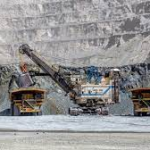 Unionized workers at the Escondida mine in northern Chile have rejected the latest offer from BHP (ASX, LON, NYSE: BHP), which was seeking to avoid a strike at the world’s largest copper mine at a time of global supply shortages and high prices.
Unionized workers at the Escondida mine in northern Chile have rejected the latest offer from BHP (ASX, LON, NYSE: BHP), which was seeking to avoid a strike at the world’s largest copper mine at a time of global supply shortages and high prices.
The Australian miner and Syndicate 1, which represents more than 2,000 employees, reached an agreement Monday that includes “a series of productivity measures” to benefit workers and the company. The agreement was reached after days of negotiations with union representatives, who had called a strike for Nov. 21 and 23 due to multiple “non-compliances, infractions and violations” committed by BHP.
However, union members voted against the agreement, saying they were ready to walk off the job on Nov. 28 and 30 if the company did not meet their demands.
The world’s largest miner denied the workers’ claims that BHP failed to comply with legal regulations and the current collective agreement. He claims he has always operated the mine following “the highest standards of occupational safety and risk prevention.”
Chile is the world’s top copper producer, and sales of the metal account for about 60 percent of its export earnings. In 2017, Escondida workers staged a 44-day strike, the longest in Chilean mining history. The union action cost the company $740 million in losses and resulted in a contraction of about 1.3 percent of Chile’s GDP.
The operation, responsible for about 5 percent of the world’s total copper production, is majority controlled and operated by BHP. Rio Tinto and Japanese companies such as Mitsubishi Corp also hold stakes in the mine.
.gif) Loading
Loading

